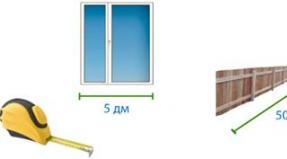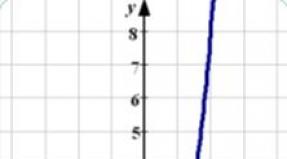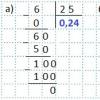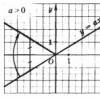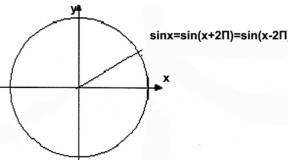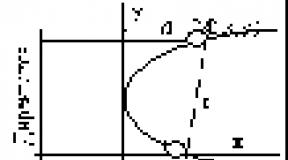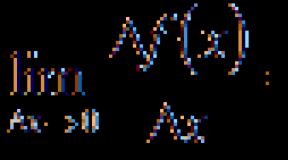How to use nicotinic acid. Nicotinic acid improves skin condition and accelerates hair growth. Nicotinic acid: injections
A nicotinic acid Is a vitamin preparation that compensates for the lack of vitamin PP in the body. Available in the form of tablets and solution for injection.
Pharmacological action of Nicotinic acid
According to the instructions, the active active ingredient of all forms of release is nicotinic acid.
When applied, Nicotinic acid has hypocholesterolemic, hypolipidemic and vasodilating effects. The substance is part of NADP (nicotinamide adenine dinucleotide phosphate) and NAD (nicotinamide adenine dinucleotide), which play an important role in the normal and full functioning of the body. NAD and NADP are compounds that carry out redox processes, carbohydrate metabolism, tissue respiration, glycogen breakdown and regulation of lipid and protein synthesis. NADP is involved in the transfer of phosphate.
Nicotinic acid prevents the development of pellagra, which may be caused by a lack of vitamin PP in the blood.
When applied, Nicotinic acid has a short vasodilating action, helps to improve microcirculation, enhances the fibrinolytic activity of the blood, which leads to a decrease in platelet aggregation.
The drug dulls lipolysis in adipose tissue and reduces the rate of synthesis of lipoproteins, which have a reduced density. Under the influence of Nicotinic acid, the lipid composition of the blood is normalized, namely: the level of cholesterol and triglycerides decreases, and the content of high density lipoproteins also increases.
Nicotinic acid has the ability to penetrate into breast milk... Perfectly absorbed in the upper duodenum and pyloric stomach. It is biotransformed in the liver and excreted from the body through the kidneys unchanged.
Indications for the use of Nicotinic acid
Nicotinic acid is prescribed for the treatment and prevention of pellagra, heart disease, mild forms of diabetes mellitus, peptic ulcer gastrointestinal tract, enterocolitis, liver, as well as gastritis, accompanied by low acidity.
The drug is effective for eliminating spasms of the kidneys, arms, legs and brain.
Nicotinic acid is prescribed for hair, as it helps to accelerate their growth.
The vitamin agent is included in the complex therapy of various infections, atherosclerosis and neuritis of the facial nerve.
Methods of using Nicotinic acid and dosages
For the treatment of pellagra, adults are prescribed 100 mg of Nicotinic acid in tablets with a frequency of administration 4 times a day. The duration of the course is 1-2 weeks. Children should take 5-50 mg 2-3 times a day. Injections of nicotinic acid intravenously at 50 mg of the drug or intramuscularly at 100 mg 1-2 times a day are also recommended.
In ischemic stroke, injections of nicotinic acid are prescribed intravenously at 10-50 mg.
For other diseases, the vitamin should be taken orally. Adults - 20-50 mg, children - 12.5-25 mg of the drug. Frequency rate of admission - 2-3 times a day.
To accelerate hair growth, nicotinic acid should be applied to dry, clean scalp daily for 1 month.
For weight loss, Nicotinic acid tablets are recommended to be taken at 100-250 mg per day.
Side effects of Nicotinic acid
Nicotinic acid can cause redness of the trunk, facial skin, numbness of the limbs, rash, hot flashes, dizziness.
With the rapid intravenous administration of the vitamin, a sharp drop in blood pressure is possible.
Contraindications for use
Nicotinic acid is not prescribed for people with hypertension, hypersensitivity, gout, during pregnancy and lactation.
Overdose
According to reviews, an overdose of Nicotinic acid is unlikely (due to the low toxicity of the vitamin). Overdose symptoms are loss of consciousness, hypotension, headaches, dizziness.
Additional Information
Long-term use of acid can lead to the development of fatty degeneration of the liver.
During therapy with Nicotinic acid, regular monitoring of liver functions is necessary.
It is necessary to store the vitamin preparation in a dry, dark place out of the reach of children.
From pharmacies, Niacin is dispensed without a doctor's prescription.
The shelf life is 5 years.
Vitamin B 3 (niacin, nicotinamide) - the only one that has been officially assigned the status of a drug, is a powerful antioxidant and is involved in all metabolic processes human body.
Description
Structural formula of nicotinic acid
It has two active forms, closely related and sometimes replacing each other, and several names. B 3 - since it was opened the third in the family of the B-complex. PP - "against pellagra" - by the name of the disease that develops due to its deficiency. Niacin - by the name of the provitamin. Nicotinamide - by the name of its amide. B 3 and RR are now considered obsolete names.
The organic substance is a white, soluble powder. Its stability is high in sour, alkaline environment, autoclave (hot steam under pressure), ultraviolet rays. It tolerates storage in a frozen, canned, dried form. Excessive consumption of sweets, sugar destroys it.
The intestinal flora of the human body is able to synthesize niacin from tryptophan.
Of all vitamins, only his medicinal properties evaluated by the medical community, and the drug officially recognized as a medicinal product.
IMPORTANT! For its mild, calming effect on the central nervous system, doctors called niacin the "calm vitamin."
Differences between nicotinic acid and nicotinamide
Both forms of the substance are able to satisfy the body's need for this biologically active substance, but they have different therapeutic effects.
Nicotinic Acid (Niacin) expands blood vessels, is used for diseases of the cardiovascular system. Entering the bloodstream is accompanied by a rush of heat waves, a feeling of slight pinpoint burning, redness of the head and neck. Contains herbal products.
Niacin and nicotinamide what is the difference?
Niacin is actually nicotinic acid, the main form of the substance.
Nicotinamide is its amide, the second form of the same substance.
They have identical vitamin activity. However, nicotinamide does not have the ability of niacin to modify lipids, lower cholesterol, and dilate blood vessels. Consider them separately when used as two different drugs in order to use their different pharmacological properties.
What does the body need vitamin PP for?

Vitamin B3 is needed by the body for the following reasons:
- Participates directly in oxidatively - recovery processes , a participant in cellular respiration. It is characterized by a pronounced antioxidant effect.
- Involved in all exchange processes, promotes the production of intracellular energy.
- Provides health skin, mucous membranes, eliminates bad breath from the mouth.
- Expands large blood vessels, lowering blood pressure. Increases the lumen of the capillaries, providing adequate nutrition for all cells of the body. It inhibits the formation of "bad" cholesterol and increases the proportion of "good" cholesterol, reduces the amount of lipoproteins, triglycerides. Prevents blood clots by reducing blood viscosity. In general, niacin counteracts atherosclerotic vascular changes.
- Strengthens cerebral blood flow, sharpens attention, memory. It has a mild sedative effect.
- Significantly increases the production of gastric juice.
- Parenteral (intravenous) vitamin administration stimulates the adrenal glands. As a result, the production of glucocorticoids increases, which have the ability to suppress local inflammatory and allergic reactions.
When planning a pregnancy
During pregnancy planning, you can take vitamin PP through complex vitamin preparations: Duovit, Vitrum, Biovital, Centrum, Gendevit. There are no special increased dosages during this period: the body does not store vitamins for future use, and an excess of vitamins is no less dangerous than their lack.
Daily rate
The daily requirement for a vitamin depends on age (see table).
Table of daily content in the body.
Release forms
- Nicotinic acid (niacin) is produced in powder, 500 mg tablets, 1% sterile solution. Analogs: VitaplexN, Nikovit, Pellagramin, Enduracin.
- Nicotinamide - in powder, tablets with a dosage of 5 and 25 mg, in 1%, 2.5%, 5% solutions.
Indications
 If the diet is complete, balanced, the body has enough vitamin that enters the body with food. But there are conditions that require additional introduction from the outside:
If the diet is complete, balanced, the body has enough vitamin that enters the body with food. But there are conditions that require additional introduction from the outside:
- Increased body needs: when carrying and feeding a child, with severe physical, intellectual, mental stress.
- Prolonged depression due to a lack of tryptophan, which the body has to spend not on creating a hubbub of happiness (serotonin), but on the synthesis of a vital vitamin.
- The first symptoms of a vitamin deficiency that appeared: persistent headaches, nervousness, weight loss, the skin is pale and dry. If the niacin deficiency is not replenished, pellagra, the "three d" disease, may develop: dermatosis - diarrhea - dementia (inflammation of the skin - loose stools - dementia).
- Diseases of the cardiovascular system ( arterial hypertension, atherosclerosis).
- Diseases of the skin and mucous membranes (stomatitis, dermatitis, acne, acne, eczema).
- Diseases of the digestive system: hypoacid gastritis, hepatitis, cirrhosis of the liver.
- CNS pathologies: neuropsychiatric and psychoemotional personality disorders: alcoholism, schizophrenia, depression, tobacco smoking.
- Diabetes mellitus type I.
- Difficult healing trophic ulcers.
Contraindications
Cannot be applied medication with individual intolerance.
Oral intake: acute period of gastritis with increased secretion, peptic ulcer stomach and duodenum; children under 2 years old.
Parenteral administration: unstable arterial hypertension; gout; severe forms of atherosclerosis, liver disease; hyperuricemia; children under 2 years old.
Carefully: bleeding tendency; glaucoma; gastritis with increased secretion, gastric ulcer and duodenal ulcer without exacerbation.
Side effects
Both oral and parenteral administration of nicotinic acid is accompanied by more or less pronounced symptoms: tide heat wave to the upper part of the body, a feeling of slight pinching; nicotinamide does not cause these manifestations.
Subcutaneous and intramuscular administration of nicotinic acid is accompanied by severe local soreness; nicotinamide is devoid of this side effect.
Possible appearance nausea, vomiting, diarrhea; increased blood sugar and uric acid; headache, dizziness; myalgia, paresthesia.
With prolonged use, the development of fatty degeneration of the liver is possible.
IMPORTANT! Fast intravenous administration niacin provokes a rapid drop in blood pressure up to the development of orthostatic collapse.
Compatibility of nicotinic acid with other vitamins
Nicotinic acid and vitamin C have a positive compatibility. Joint reception with ascorbic acid potentiates action both vitamins. The usual dosages for combined use should be reduced.
Compatibility with B vitamins
 Vitamin B1
Vitamin B1
Nicotinic acid and vitamin B1 have a negative compatibility. Niacin has a destructive effect on thiamine (B 1). Recommended separate reception
Vitamin B6
Nicotinic acid and vitamin B6 have a positive compatibility. Pyridoxine (B 6) facilitates the absorption of niacin, possibly simultaneous reception.
Vitamin B12
Nicotinic acid and vitamin B12 have a negative compatibility. The joint intake of niacin and cyanocobalamin (B 12) destroys the latter. Recommended separate reception with an interval of at least 6 hours.
Taking Roaccutane with Nicotinic Acid (Vitamin B3)
Roaccutane (ROA) is a potent drug with many limitations, side effects and special instructions. Patients undergoing ROA treatment should be under constant medical supervision. Only the dermatologist decides on the need to prescribe additional drugs.
The use of nicotinamide in cosmetics
- Nicotinamide is used as a powerful antioxidantthat relieves skin irritation. Protects the skin from the action of ultraviolet radiation, acts as a stimulator of cell metabolism, improves its blood supply.
- It is part of products that care for irritated, sensitive, aging or pigmented skin. It has proven itself well in the treatment of rosacea and acne.
- Contains nicotinamide sunscreens, bath and shower products, mouthwash.
The use of niacin for hair growth
 Vitamin, niacin, is recognized as an effective and low-budget stimulant hair Growth... The effect is to improve blood supply hair follicles, their complementary food. Niacin helps to retain moisture in the hair, preventing it from drying out, eliminates dandruff and seborrhea.
Vitamin, niacin, is recognized as an effective and low-budget stimulant hair Growth... The effect is to improve blood supply hair follicles, their complementary food. Niacin helps to retain moisture in the hair, preventing it from drying out, eliminates dandruff and seborrhea.
Mode of application
Apply the solution from the ampoule to the roots of washed and dried hair, massaging the skin (the hair itself does not require processing) and put on a warming cap. Keep for 1.5 - 2 hours. If the substance is injected as an ingredient in the mask - no longer than 30 minutes. After the required time has elapsed, rinse with warm water.
The frequency of procedures is 2 times a week, the course is 30 days; repetitions of courses are possible at two-month intervals. The daily dose for external use is 4 ampoules (or 8 powdered tablets).
IMPORTANT! Local allergic reactions are possible! Before use, you need to make a skin test: apply to the skin of the wrists from the inside, stand for 60 minutes. Monitor the reaction (itching, burning, redness, swelling). If there are manifestations, then this remedy is not for you.
What products contain

100 g of porcini mushroom contains 8.5 mg of vitamin PP
The highest content (more than 10 mg per 100 g of product) is in the liver, cheeses, yeast, offal (heart, kidney), coffee beans.
Vitamin B3 is present in some herbs: burdock root, chamomile, raspberry leaves, red clover, parsley, peppermint, rose hips, sorrel, ginseng, and fennel seeds.
For a complete table with products, see a separate article:
Useful video
Video about the benefits and dangers of niacin for hair:
Conclusion
Niacin (nicotinamide) - medicine... FROM therapeutic purpose use it only as directed by your doctor. The use of complexes containing vitamins in standard dosages does not require medical supervision.
Registration number: Р№ 000944/02
Tradename: A nicotinic acid
International non-proprietary name : A nicotinic acid
Chemical name: 3-pyridinecarboxylic acid
Dosage form: pills
Composition
1 tablet contains:
Active ingredients: 0.05 g of nicotinic acid.
Excipients: glucose, stearic acid.
Description... The tablets are white.
Pharmacotherapeutic group... An agent that regulates metabolic processes. Vitamin preparation.
ATX code: [S10AD02].
Pharmacological properties.
Nicotinic acid is a specific antipellargic agent (vitamin PP). Improves carbohydrate metabolism, has a vasodilating effect, including on the vessels of the brain, has hypolipidemic activity. In large doses of 3-4 g per day, nicotinic acid reduces the content of triglycerides and low-density lipoproteins, reduces the ratio of cholesterol / phospholipids in low-density lipoproteins. It has detoxifying properties.
Indications for use:
Prevention and treatment of pellagra (vitamin deficiency PP); complex therapy of ischemic disorders of cerebral circulation, obliterating diseases of the vessels of the extremities (obliterating endarteritis, Raynaud's disease) and kidneys, complications of diabetes mellitus (diabetic polyneuropathy, microangiopathy); liver diseases (acute and chronic hepatitis), gastritis with low acidity, neuritis of the facial nerve, various intoxications (professional, medication, alcohol), long-term non-healing wounds and ulcers.
Contraindications:
Hypersensitivity to the drug. Peptic ulcer and 12-duodenal ulcer (in the acute stage); severe arterial hypertension; gout; hyperuricemia, nephrolithiasis, liver cirrhosis, decompensated diabetes.
Pregnancy and the period of breastfeeding.
special instructions
To prevent complications from the liver (with long-term use in large doses) it is recommended to include in the diet foods rich in methionine (cottage cheese) or use methionine, lipoic acid, Essentiale and other lipotropic agents. It should be used with caution in case of gastritis with high acidity, gastric ulcer and duodenal ulcer (in history). During treatment with nicotinic acid (especially in large doses), liver function should be carefully monitored.
Method of administration and dosage
It is used as directed by a doctor.
Nicotinic acid tablets are taken orally after meals. As an antipellargic agent, nicotinic acid is prescribed for adults at 0.1 g 2-4 times a day (the highest daily dose is 0.5 g). Children are prescribed from 0.0125 to 0.05 g 2-3 times a day, depending on age. The course of treatment is 15-20 days.
For adults with ischemic disorders of cerebral circulation, vascular spasms of the extremities, gastritis with low acidity, neuritis of the facial nerve, wounds and ulcers, nicotinic acid is recommended to be prescribed in a single dose of 0.05-0.1 g, in daily dose - up to 0.5 g. The course of treatment is 1 month.
Side effect
Allergic reactions, dizziness, facial flushing, a feeling of flushing to the head, paresthesia are possible. In this case, you should reduce the dose or cancel the drug. With prolonged use of large doses of nicotinic acid, it is possible to develop fatty degeneration of the liver, hyperuricemia, an increase in the activity of hepatic transaminases and alkaline phosphatase, and a decrease in glucose tolerance.
Interaction with other medicinal products
It is necessary to consult a doctor if nicotinic acid will be used concurrently with other medicines.
Release form
50 tablets in dark glass jars. 10 tablets in a blister strip packaging. Each can or 5 blisters are placed in a carton box.
Shelf life
4 years. Do not use the drug after the expiration date.
Storage conditions
List B. Store at room temperature, in a dry, dark place. Keep out of the reach of children.
Dispensing from pharmacies
Without recipe.
Manufacturer: OJSC "VEROPHARM"
Legal address: 107023, Moscow, Barabanny per., 3.
Address of production and acceptance of claims: 308013, Belgorod, st. Rabochaya, 14.
Today we offer you to take a closer look at such a drug. wide range acts like nicotinic acid. This tool is successfully used not only for the treatment of a number of diseases, but also for weight loss, as well as improving the condition of the hair.
Nicotinic acid tablets: pharmacology
This drug is a very important vitamin for the human body, which contributes to the normal course of the overwhelming number of educational and metabolic processes... Nicotinic acid improves liver function, helps heal wounds and ulcers, and promotes blood formation in bone marrow, reduces the risk of vascular spasms, activates the motility of the gastrointestinal tract and the production of the gastric mucosa, facilitates the detoxification process, and reduces the concentration of glucose in the blood. In addition, the use of this drug has a positive effect on the functioning of the cardiovascular, as well as nervous system... Nicotinic acid tablets have a beneficial effect on lipid metabolism, and also helps to reduce blood cholesterol levels in patients with atherosclerosis and hypercholesterolemia. The use of this drug for pellagra is very effective. However, a complete list useful properties nicotinic acid is not limited to the listed items. Thus, this substance is effective as an antipruritic, desensitizing, detoxifying and vasodilating agent. In addition, nicotinic acid tablets are also used for weight loss.

Indications for use
Nicotinic acid tablets are prescribed by doctors for various liver diseases, multiple sclerosis, as well as with endarteritis and processes accompanied by angiospastic phenomena. Besides, this drug often used in the treatment of diseases of the skin and mucous membranes: eczema, lupus erythematosus, photodermatosis, dermatitis, psoriasis, neurodermatitis, glossitis, skin porphyria and others. This agent is also effective in the treatment of dermatoses leading to peripheral circulatory disorders. This drug is also used as a detoxifying agent for sulfonamide poisoning, as well as for prolonged therapy using anti-tuberculosis and antimalarial agents. Nicotinic acid also helps in diagnostic measures to identify erythema leprosy or syphilitic roseola.

Nicotinic acid (tablets): instruction
Since this drug is used to treat various diseasesprescribing the correct dosage is an important factor. This can only be done by a qualified doctor. Typically, nicotinic acid tablets are prescribed in a dosage of 0.02 to 0.1 grams at a time, three times a day. The drug should be taken after meals. In order to prevent nicotinic acid, it is prescribed at a dosage of 0.015-0.025 grams three times a day (for adult patients) and 0.005-0.02 grams per day (for children). Depending on the type of disease and the patient's condition, the duration of therapy with this drug can be 3-5 weeks. If a repeated course of treatment is necessary, it should be started no earlier than 10-14 days later.

Side effects
Nicotinic acid tablets, reviews of which are overwhelmingly positive, are usually very well tolerated by patients. Nevertheless, in the first time after the start of taking the drug, side effects may develop in the form of an increase in body temperature and redness of the skin of the face. Such symptoms quickly pass and do not cause any particular inconvenience to the patient. In the case of prolonged use of niacin, stomach diseases can worsen, as well as disorders in the functioning of the liver and kidneys. In order to prevent such complications, patients are additionally prescribed the drug "Methionine", and it is also recommended to eat cottage cheese more often. As for contraindications, nicotinic acid should in no case be used by persons who have an individual intolerance to this substance. For all other groups of patients, this drug is quite safe. In addition, it is successfully used by both pregnant women and children.
In this article, you can read the instructions for use medicinal product ... The reviews of website visitors - consumers of this medicine, as well as opinions of doctors of specialists on the use of Nicotinic acid or Niacin in their practice are presented. A big request is to actively add your reviews about the drug: did the medicine help or did not help get rid of the disease, what complications were observed and side effects, possibly not declared by the manufacturer in the annotation. Analogues of Nicotinic acid in the presence of available structural analogs. Use to treat vitamin B3 or PP deficiency, pellagra, and hair loss or baldness in adults, children, and pregnancy and lactation. Composition of the preparation.
Nicotinic Acid or Niacin - vitamin and lipid-lowering agent. In the body, nicotinic acid is converted into nicotinamide, which binds to the coenzymes of codehydrogenase 1 and 2 (NAD and NADP), which carry hydrogen, and is involved in the metabolism of fats, proteins, amino acids, purines, tissue respiration, glycogenolysis, and synthetic processes.
Replenishes the deficiency of vitamin PP (vitamin B3), is a specific antipellagric agent (vitamin PP vitamin deficiency). Normalizes the concentration of blood lipoproteins; in high doses (3-4 g orally per day) reduces the concentration of total cholesterol, LDL, TG, reduces the cholesterol / phospholipid index, increases the content of HDL, which has an antiatherogenic effect. It has a vasodilating effect at the level of small vessels (including the brain), improves microcirculation, has a weak anticoagulant effect (increases the fibrinolytic activity of the blood).
The hypocholesterolemic effect is observed after a few days, the decrease in TG - a few hours after administration.
Composition
Nicotinic acid + excipients.
Indications
Hypo- and avitaminosis PP:
- pellagra (accompanied by irritability, dermatitis, insomnia, hair loss or baldness, and other symptoms);
- inadequate and unbalanced nutrition (including parenteral);
- malabsorption syndrome (including against the background of dysfunction of the pancreas);
- fast weight loss;
- gastrectomy;
- hartnup's disease (hereditary disease, accompanied by impaired absorption of certain amino acids, including tryptophan);
- gastrointestinal diseases (gluten enteropathy, persistent diarrhea, tropical sprue, Crohn's disease).
Conditions of increased body demand for vitamin PP:
- prolonged fever;
- diseases of the hepatobiliary region (acute and chronic hepatitis, liver cirrhosis);
- hyperthyroidism;
- chronic infections;
- malignant tumors;
- prolonged stress;
- pregnancy (especially against the background of nicotine and drug addiction, multiple pregnancy);
- lactation period.
Hyperlipidemia, incl. primary hyperlipidemia (types 2a, 2b, 3, 4, 5) and disorders of cholesterol metabolism.
Ischemic disorders of cerebral circulation, obliterating vascular diseases of the extremities (obliterating endarteritis, Raynaud's disease), vasospasm of the extremities, bile and urinary tract; diabetic polyneuropathy, microangiopathy.
Neuritis of the facial nerve, hypoacid gastritis, enterocolitis, colitis, long-term non-healing wounds and trophic ulcers.
Release forms
Tablets 50 mg.
Solution for injection (injections in ampoules).
Instructions for use and dosage regimen
Inside (after meals), slowly intravenously, intramuscularly, subcutaneously. For prevention: inside, adults - 0.0125-0.025 g per day, children - 0.005-0.025 g per day.
With pellagra and improved hair growth: adults - by mouth, 0.1 g 2-4 times a day for 15-20 days or intravenously 0.05 g or intramuscularly 0.1 g, 1-2 times a day within 10-15 days; children - inside, at 0.0125-0.05 g 2-3 times a day.
With ischemic stroke: intravenously, 0.01-0.05 g.
With atherosclerosis: inside, 2-3 g per day in 2-4 doses.
In case of lipid metabolism disorders: inside, the dose is gradually increased (in the absence side effects) from 0.05 g 1 time per day to 2-3 g per day in several doses, the course of treatment is 1 month or more, breaks are required between repeated courses.
For other diseases: inside, adults - 0.02-0.05 g (up to 0.1 g) 2-3 times a day, children - 0.0125-0.025 g 2-3 times a day.
Side effect
- hyperemia of the skin of the face and upper half of the body with a tingling sensation and burning;
- with rapid administration - lowering blood pressure, orthostatic hypotension, collapse;
- paresthesia;
- dizziness;
- fatty degeneration of the liver;
- decreased glucose tolerance;
- increased blood levels of AST, LDH, ALP;
- soreness at the site of subcutaneous and intramuscular injections;
- allergic reactions.
Contraindications
- hypersensitivity to nicotinic acid;
- peptic ulcer of the stomach and duodenum in the acute phase;
- children under 2 years of age (as a lipid-lowering agent) (for tablets);
- severe arterial hypertension;
- atherosclerosis;
- gout;
- hyperuricemia.
Application during pregnancy and lactation
Use Niacin or Niacin with caution during pregnancy and breastfeeding (high doses are contraindicated).
Application in children
Contraindicated in children under 2 years of age (as a lipid-lowering agent) for taking in pill form.
Parenteral forms of niacin are contraindicated for use in childhood.
special instructions
Use with caution orally in patients with hemorrhages, glaucoma, gout, hyperuricemia, liver failure, arterial hypotension, hyperacid gastritis, gastric ulcer and duodenal ulcer (in remission).
Use parenterally with caution in patients with hemorrhages, glaucoma, liver failure, arterial hypotension, hyperacid gastritis, gastric ulcer and duodenal ulcer (in the acute phase).
With long-term use of nicotinic acid in high doses, fatty liver infiltration may develop.
During treatment, it is necessary to monitor liver function.
It is inappropriate to use for the correction of dyslipidemia in patients with diabetes mellitus.
To prevent complications from the liver, it is recommended to include in the diet foods rich in methionine (cottage cheese) or to use methionine, lipoic acid and other lipotropic agents.
It should be borne in mind that subcutaneous and intramuscular injections are painful.
Drug interactions
Care must be taken when combining with antihypertensive drugs, anticoagulants and acetylsalicylic acid.
Nicotinic acid reduces the toxicity of neomycin and prevents the decrease in cholesterol and HDL levels it induces.
Analogues of the medicinal product Nicotinic acid or Niacin
Structural analogues active substance:
- Nicotinic Acid (Niacin);
- Nicotinic acid bufus;
- Nicotinic Acid Vial;
- Enduracin.
Analogs on pharmacological group (vitamins and vitamin-like products):
- Aevit;
- Antioxicaps;
- Vitamin C;
- Ascorutin;
- Berocca;
- Vitagamma;
- Vitamax;
- Vitamin A;
- Vitamin B1;
- Vitamin B2;
- Vitamin B3;
- Vitamin B12;
- Vitamin C;
- Vitamin D3;
- Vitamin E;
- Vitrum;
- Calcevita;
- Calcium D3 Nycomed;
- Kaltsinov;
- Carnitine;
- Kombilipen;
- Complivit;
- Levocarnitine;
- Magnesium plus;
- Milgamma;
- Multitabs;
- Multimax;
- Neurogamma;
- Neurodiclovitis;
- Neuromultivitis;
- Niacinamide;
- Nicotinamide;
- Oxydevit;
- Octolipene;
- Oligovite;
- Perfectil;
- Pikovit;
- Pyridoxine;
- Pregnavit;
- Pregnakea;
- Prenatal;
- Retinol;
- Riboflavin;
- Fish fat;
- Sana Sol;
- Selmevit;
- Special dragee Merz;
- Supradin;
- Terawit;
- Thiamine;
- Thioctacid;
- Triovit;
- Undevit;
- Folic acid;
- Centrum;
- Cyanocobalamin;
- Eikonol;
- Elevit Pronatal;
- Elkar.
In the absence of analogues of the drug for the active substance, you can follow the links below to the diseases for which the corresponding drug helps, and see the available analogues for the therapeutic effect.

